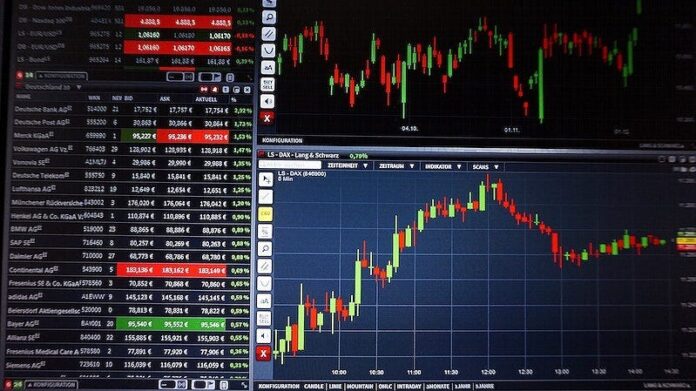Artificial intelligence (AI) is revolutionizing the financial industry by enhancing banking operations, transforming trading strategies, and revolutionizing financial analysis. This article explores how AI reshapes the banking, trading, and finance sectors with innovation.
AI in Banking Operations
Customer Service and Personalization
AI-powered chatbots and virtual assistants improve customer service by providing 24/7 support, answering queries, and assisting with transactions. NLP enables real-time understanding and responses to customer inquiries, enhancing efficiency and user experience.
Fraud Detection and Risk Management
AI algorithms analyze transaction patterns, detect anomalies, and identify potential fraudulent activities in real time. Machine learning models learn from historical data to predict risks, mitigate fraud, and enhance cybersecurity measures, safeguarding financial institutions and customer assets.
AI in Trading Strategies
Algorithmic Trading and Market Prediction
AI-driven algorithms execute trades at high speeds based on market data analysis, trends, and predictive analytics. Deep learning models analyze vast datasets to identify profitable opportunities and optimize trading strategies, achieving higher accuracy and efficiency than traditional methods.
Sentiment Analysis and Decision Support
Natural language processing (NLP) techniques analyze news articles, social media sentiment, and financial reports to gauge market sentiment and investor behavior. AI-powered sentiment analysis aids traders and financial analysts in making informed decisions, predicting market movements, and mitigating risks.
AI in Financial Analysis
Data Analytics and Investment Insights
AI enhances financial analysis by analyzing large volumes of structured and unstructured data, generating actionable insights, and predicting market trends. Machine learning models identify patterns, correlations, and investment opportunities, enabling asset managers and analysts to optimize portfolio management and asset allocation strategies.
Risk Assessment and Compliance
AI automates risk assessment processes by analyzing credit scores, financial histories, and market data to evaluate loan applications and assess creditworthiness. Regulatory technology (RegTech) solutions powered by AI ensure compliance with financial regulations and reduce operational risks for financial institutions.
Latest Developments and Future Trends
AI-Powered Robo-Advisors and Wealth Management
Robo-advisors leverage AI algorithms to provide personalized investment advice, portfolio management, and retirement planning services. These platforms cater to individual investors by offering low-cost, diversified investment options based on risk tolerance and financial goals.
Blockchain and AI Integration
The integration of AI with blockchain technology enhances transparency, security, and efficiency in financial transactions and smart contracts. AI algorithms analyze blockchain data to detect fraud, verify transactions, and optimize decentralized financial (DeFi) protocols, driving innovation in digital asset management and financial services.
Conclusion
AI’s transformative impact on banking, trading, and financial analysis underscores its role in driving efficiency, enhancing decision-making, and fostering innovation in the financial industry. As AI technologies continue to evolve, collaboration between financial institutions, fintech startups, and regulatory bodies is essential to navigating challenges, maximizing opportunities, and ensuring responsible deployment of AI in finance.





